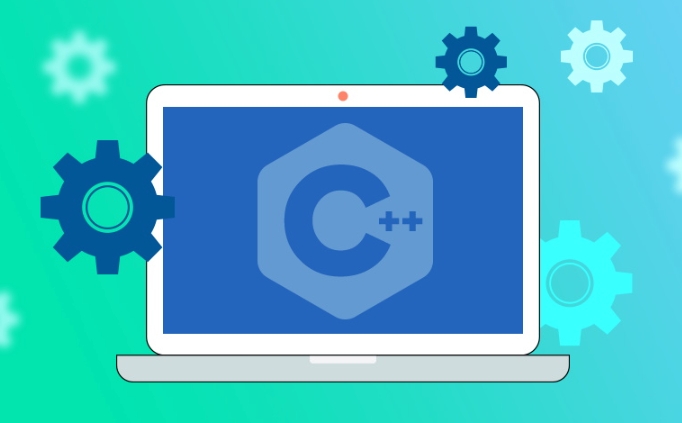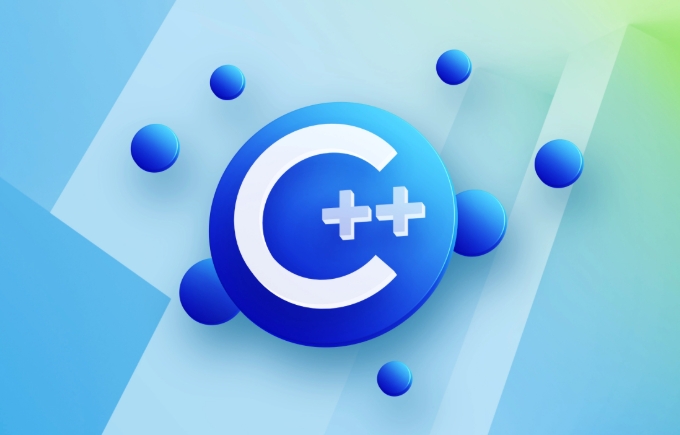To learn C system programming, you need to master basic syntax, memory management, operating system interfaces, multi-threading and debugging tools. First, be familiar with the basic syntax of classes, pointers, references, arrays, etc., understand the difference between pointers and references, memory allocation and release timing, RAII ideas and smart pointers; second, master POSIX APIs such as fork(), exec(), pthread_create(), and understand thread synchronization, race conditions and atomic operations; second, be proficient in using GDB debugging, Valgrind to detect memory problems, and strace tracking system calls; finally, improve practical capabilities by implementing small projects such as shell interpreters, network communication programs, and log systems.

It is actually quite common to learn C to do system programming. C is suitable for this because it is close to the hardware, has good performance, and can operate memory directly. If you are writing operating systems, drivers, embedded systems or underlying tools, then this tutorial will help you clarify the direction.

Learn basic grammar and memory management well
In system programming, resource control is very important, so you have to first lay down the basic skills of C. For example, you must be familiar with classes, pointers, references, and arrays. Especially in memory management , the usages of new/delete, malloc/free cannot be errored, otherwise it will easily lead to memory leakage or segfault.

Suggested understanding of key points:
- The difference between pointers and references
- Memory allocation and release timing
- Design idea of ??RAII (resource acquisition is initialization)
- Use smart pointers (unique_ptr, shared_ptr) instead of naked pointers
For example, writing a simple memory pool under Linux or implementing your own string class is a good way to practice.

Familiar with operating system interfaces and multithreaded programming
System programming is inseparable from the interfaces provided by the operating system, such as file reading and writing, process control, signal processing, thread synchronization, etc. In this part, you need to master the APIs under the POSIX standard, such as how to use functions such as fork() , exec() , pthread_create() , and mmap() .
Multithreading programming is particularly important. C 11 has supported threads since the standard library, and you can use <thread></thread> and <mutex></mutex> for concurrent control. But also note:
- Avoid race conditions
- Use lock mechanism rationally
- Understand atomic operations and memory order
For example: you can write a multi-threaded server to listen to socket requests, and each connection opens a thread to process it. This kind of scenario is very common and can be practiced.
Master debugging and performance analysis tools
Writing the underlying code is prone to problems, and many problems are not easy to reproduce. At this time, you will rely especially on debugging tools and performance analysis methods. GDB must be used. In addition, Valgrind can check memory leaks, strace can track system calls, and perf can analyze hotspot functions.
Suggest you:
- Use GDB to set breakpoints, view stacks, and modify changes
- Check memory access out of bounds and leaks with Valgrind
- Use strace to see which system functions are called during the execution of the program
Only when the debugging capabilities improve will the development efficiency be higher. Especially when encountering problems such as segfault and deadlock, tools can help you quickly locate the cause.
Practical project recommendation
Just reading tutorials is not enough, the key is to do it. You can start with some small projects and slowly increase the difficulty. for example:
- Implement a simple shell interpreter (parse commands, create child processes)
- Writing TCP/UDP client and server communication programs
- Making a log system that supports multi-threaded write and log-level filtering
- Try writing a small memory management module
Although these projects are not complicated, they can help you string together the knowledge you have learned. And after making it, you can also write some actual content on your resume.
Basically that's it. System programming is a slow job that requires patience and practice. C is just the starting point as a tool. What is really important is the understanding of the system mechanism and hands-on ability. Don’t be afraid of getting stuck in pitfalls. Check more documents and read more source codes. Make progress naturally fast.
The above is the detailed content of C tutorial for systems programming. For more information, please follow other related articles on the PHP Chinese website!

Hot AI Tools

Undress AI Tool
Undress images for free

Undresser.AI Undress
AI-powered app for creating realistic nude photos

AI Clothes Remover
Online AI tool for removing clothes from photos.

Clothoff.io
AI clothes remover

Video Face Swap
Swap faces in any video effortlessly with our completely free AI face swap tool!

Hot Article

Hot Tools

Notepad++7.3.1
Easy-to-use and free code editor

SublimeText3 Chinese version
Chinese version, very easy to use

Zend Studio 13.0.1
Powerful PHP integrated development environment

Dreamweaver CS6
Visual web development tools

SublimeText3 Mac version
God-level code editing software (SublimeText3)

Hot Topics
 C Destructors code samples
Jun 13, 2025 am 12:04 AM
C Destructors code samples
Jun 13, 2025 am 12:04 AM
The destructor in C is used to free the resources occupied by the object. 1) They are automatically called at the end of the object's life cycle, such as leaving scope or using delete. 2) Resource management, exception security and performance optimization should be considered during design. 3) Avoid throwing exceptions in the destructor and use RAII mode to ensure resource release. 4) Define a virtual destructor in the base class to ensure that the derived class objects are properly destroyed. 5) Performance optimization can be achieved through object pools or smart pointers. 6) Keep the destructor thread safe and concise, and focus on resource release.
 C Polymorphism : is function overloading a kind of polymorphism?
Jun 20, 2025 am 12:05 AM
C Polymorphism : is function overloading a kind of polymorphism?
Jun 20, 2025 am 12:05 AM
Yes, function overloading is a polymorphic form in C, specifically compile-time polymorphism. 1. Function overload allows multiple functions with the same name but different parameter lists. 2. The compiler decides which function to call at compile time based on the provided parameters. 3. Unlike runtime polymorphism, function overloading has no extra overhead at runtime, and is simple to implement but less flexible.
 What Are the Different Kinds of Polymorphism in C ? Explained
Jun 20, 2025 am 12:08 AM
What Are the Different Kinds of Polymorphism in C ? Explained
Jun 20, 2025 am 12:08 AM
C has two main polymorphic types: compile-time polymorphism and run-time polymorphism. 1. Compilation-time polymorphism is implemented through function overloading and templates, providing high efficiency but may lead to code bloating. 2. Runtime polymorphism is implemented through virtual functions and inheritance, providing flexibility but performance overhead.
 How to Implement Polymorphism in C : A Step-by-Step Tutorial
Jun 14, 2025 am 12:02 AM
How to Implement Polymorphism in C : A Step-by-Step Tutorial
Jun 14, 2025 am 12:02 AM
Implementing polymorphism in C can be achieved through the following steps: 1) use inheritance and virtual functions, 2) define a base class containing virtual functions, 3) rewrite these virtual functions by derived classes, and 4) call these functions using base class pointers or references. Polymorphism allows different types of objects to be treated as objects of the same basis type, thereby improving code flexibility and maintainability.
 C : Is Polymorphism really useful?
Jun 20, 2025 am 12:01 AM
C : Is Polymorphism really useful?
Jun 20, 2025 am 12:01 AM
Yes, polymorphisms in C are very useful. 1) It provides flexibility to allow easy addition of new types; 2) promotes code reuse and reduces duplication; 3) simplifies maintenance, making the code easier to expand and adapt to changes. Despite performance and memory management challenges, its advantages are particularly significant in complex systems.
 C Destructors: Common Errors
Jun 20, 2025 am 12:12 AM
C Destructors: Common Errors
Jun 20, 2025 am 12:12 AM
C destructorscanleadtoseveralcommonerrors.Toavoidthem:1)Preventdoubledeletionbysettingpointerstonullptrorusingsmartpointers.2)Handleexceptionsindestructorsbycatchingandloggingthem.3)Usevirtualdestructorsinbaseclassesforproperpolymorphicdestruction.4
 What Are the Various Forms of Polymorphism in C ?
Jun 20, 2025 am 12:21 AM
What Are the Various Forms of Polymorphism in C ?
Jun 20, 2025 am 12:21 AM
C polymorphismincludescompile-time,runtime,andtemplatepolymorphism.1)Compile-timepolymorphismusesfunctionandoperatoroverloadingforefficiency.2)Runtimepolymorphismemploysvirtualfunctionsforflexibility.3)Templatepolymorphismenablesgenericprogrammingfo
 Polymorphism in C : A Comprehensive Guide with Examples
Jun 21, 2025 am 12:11 AM
Polymorphism in C : A Comprehensive Guide with Examples
Jun 21, 2025 am 12:11 AM
Polymorphisms in C are divided into runtime polymorphisms and compile-time polymorphisms. 1. Runtime polymorphism is implemented through virtual functions, allowing the correct method to be called dynamically at runtime. 2. Compilation-time polymorphism is implemented through function overloading and templates, providing higher performance and flexibility.






